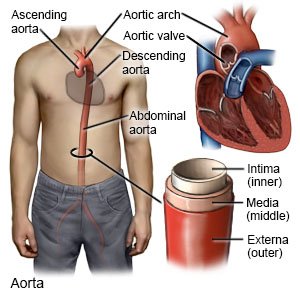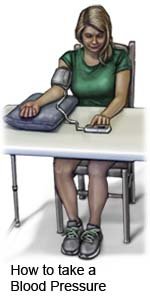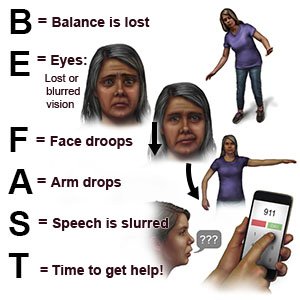Aortic Disease
Medically reviewed by Drugs.com. Last updated on Aug 4, 2025.
What is aortic disease?
Aortic disease is a general term to describe conditions that affect the aorta or the aortic valve. The aorta is a large blood vessel that goes from your heart down into your abdomen. The valve opens to let blood go from your heart into your aorta. The valve then closes to prevent blood from flowing back into your heart. An aortic disease develops because the aorta or its valve is weakened, damaged, or not formed correctly. The main aortic diseases are aneurysms and dissections. An aneurysm is a bulge that may rupture (burst). A dissection is a tear that happens suddenly. A rupture or tear is a life-threatening emergency.
 |
What increases my risk for aortic disease?
- A connective tissue disorder such as Marfan syndrome or vascular Ehlers-Danlos syndrome
- Certain other genetic conditions
- Obesity, high blood pressure, or atherosclerosis (hard or stiff artery)
- Cigarette or cocaine use
- A family history of aortic disease
- A traumatic injury
What are the signs and symptoms of aortic disease?
You may not have any signs or symptoms with some types of aortic disease. You may feel a lump or swelling in your abdomen that pulses with your heartbeat if you have an abdominal aneurysm. You may have any of the following if your aorta gets blocked, dissects, or ruptures:
- Tight feeling, change in color, or pain in your buttocks or legs
- Pain in your neck, chest, abdomen, or back
- Trouble breathing or shortness of breath
- Pale, sweaty, or clammy skin
- Dizziness, fainting, or loss of consciousness
- Loss of feeling or movement from your waist to your toes
- Heart attack or stroke
How is aortic disease diagnosed?
Aortic disease may be diagnosed when you have a test done for another condition. Your healthcare provider will examine you and ask about your medical history. Tell your provider if you have any symptoms and when they started. Tell your provider about any medicines you take. You may also need any of the following:
- A CT, PET scan, MRI, or ultrasound may show a bulge, tear, or other problem in your aorta. You may be given contrast liquid to help your aorta show up better in pictures. Tell the healthcare provider if you have ever had an allergic reaction to contrast liquid. Do not enter the MRI room with anything metal. Metal can cause serious injury. Tell the provider if you have any metal in or on your body.
- An echocardiogram may show problems with your aorta and how blood flows through your heart. It may also show how well your heart is pumping.
How is aortic disease treated?
Your aortic disease may not need treatment. Your healthcare provider may watch for changes over time. You may need any of the following, depending on the type of aortic disease you have:
- Blood pressure (BP) medicine may be needed to lower your BP to prevent a tear or rupture.
- Cholesterol medicine may be needed to lower your cholesterol level to prevent atherosclerosis.
- Antiplatelets , such as aspirin, help prevent blood clots. Take your antiplatelet medicine exactly as directed. These medicines make it more likely for you to bleed or bruise. If you are told to take aspirin, do not take acetaminophen or ibuprofen instead.
- Endovascular repair is a procedure that uses a graft to repair or protect your aorta. A graft is a wire mesh tube that can also help widen your aorta. You may need more than 1 endovascular repair.
- Surgery may be needed to repair your aorta or remove a clot or blockage in your aorta. You may instead need surgery to replace part of your aorta. Your aortic valve may need to be replaced if it is not opening or closing well.
What can I do to help manage aortic disease?
Your healthcare provider may recommend cardiac rehabilitation (rehab). Cardiac rehab is a program run by a team of specialists who will help you create a management plan. Your plan may include these or other guidelines:
- Manage other health conditions that increase the risk for new or worsening aortic disease. Examples are extra body weight, stress, and high BP. Ask your provider what a healthy weight is for you. Your provider can help you create a weight loss plan, if needed. Manage stress by learning new ways to relax, such as listening to music. Check your BP as directed if you have high BP. Your provider will show you how to do this. Check your BP 2 times, 1 minute apart. Check as often as directed each day. Keep a record of your readings and bring it to your follow-up visits.

- Do not use tobacco products or stimulating drugs. Nicotine and drugs such as cocaine increase your risk for a tear, rupture, or other problem in your aorta. Ask your provider for information if you currently use tobacco products or stimulating drugs and need help to quit. E-cigarettes or smokeless tobacco still contain nicotine. Do not use these in place of cigarettes. Avoid secondhand smoke.
- Know the risks if you choose to drink alcohol. Alcohol can increase your BP. Ask your healthcare provider if it is okay for you to drink any alcohol. Your provider can help you set limits for the number of drinks you have within 24 hours and within 1 week. A drink of alcohol is 12 ounces of beer, 5 ounces of wine, or 1½ ounces of liquor.
- Follow physical activity directions. Your physical activity plan may include low-intensity activity, such as walking, yoga, or swimming. You may need to avoid intense physical activity, such as weightlifting or running. Intense activity may raise your BP or put pressure on your aorta. These increase your risk for a tear or rupture. You may also need to avoid contact sports such as football to decrease your risk for a chest injury.

- Follow recommended meal plans. Talk to your provider or a dietitian about a heart-healthy or low-sodium meal plan. These meal plans may help you lower your cholesterol and BP levels, and reach or maintain a healthy weight. Heart-healthy meal plans are low in sodium, processed sugar, and some fats. They are high in potassium, calcium, heart-healthy fats, and fiber. These can be found in vegetables, fruit, and whole-grain foods.

- Get vaccines as directed. Some viruses can worsen aortic disease. Get an influenza (flu) vaccine as soon as recommended each year, usually in September or October. Get all recommended COVID-19 vaccine doses and boosters. A pneumonia vaccine may also be recommended. Your provider will tell you if you need other vaccines, and when to get them.
What do I need to know about family planning?
- Before you try to get pregnant, talk to your specialist about family planning. Genetic counseling may be needed if you have a condition that can pass on to your baby. You may need counseling if your condition can put you or your pregnancy at risk. You may instead need counseling about the risk of pregnancy making your aortic disease worse. You may also need scans of your aorta. These scans can help you and your provider plan treatment before and during your pregnancy. You may need surgery to protect your aorta and prevent a dissection or rupture.
- While you are pregnant, you may have 1 or more specialist caring for you. You may need medicine to help lower your blood pressure. You may need regular scans to check your aorta. You may need other medicines or surgery if your aorta dissects or ruptures. A cesarean section (C-section) may be needed if you have a history of aortic dissection. You may need a C-section if you have a high risk for an aortic dissection or rupture.
- After your baby is born, you may need scans to check your aorta. Your risk for an aortic dissection or rupture is high for up to 12 weeks.
What do I need to know about screening for aortic disease?
Your healthcare provider can give you screening information based on your risk factors. The following is general information:
- Screening means you are first checked based on family history of aortic disease and your personal risk factors. An ultrasound, CT, MRI, or echocardiogram may be used to check for aortic disease.
- Your parents, siblings, or children may also need to be screened.
- The main benefit of screening is that your provider can diagnose an aortic disease early. This may help your provider monitor your condition and start treatment quickly, if needed. Screening can also help you plan a healthy pregnancy.
Call your local emergency number (911 in the US) or have someone call if:
- You have any of the following signs of a heart attack:
- Squeezing, pressure, or pain in your chest
- You may also have any of the following:
- Discomfort or pain in your back, neck, jaw, stomach, or arm
- Shortness of breath
- Nausea or vomiting
- Lightheadedness or a sudden cold sweat
- You have any of the following signs of a stroke:
- Numbness or drooping on one side of your face
- Weakness in an arm or leg
- Confusion or difficulty speaking
- Dizziness, a severe headache, or vision loss

- You have sudden sharp pain in your back, abdomen, or groin.
- You cough or vomit up blood.
- You cannot feel anything from your waist to your toes.
- You have trouble breathing or shortness of breath.
- You feel dizzy, faint, or you lose consciousness.
When should I seek immediate care?
- You have a fever.
- You have a pulsating lump or swelling in your abdomen.
- You have trouble swallowing.
- You have blood in your urine.
- You are urinating very little or not at all.
- You have at least 1 toe that looks blue or darker than usual.
- You have a foot that changes color and becomes cold to the touch.
- Your skin is pale, sweaty, or clammy.
When should I call my doctor or specialist?
- You want to start family planning.
- You feel anxious or depressed about your condition.
- You have questions or concerns about your condition or care.
Care Agreement
You have the right to help plan your care. Learn about your health condition and how it may be treated. Discuss treatment options with your healthcare providers to decide what care you want to receive. You always have the right to refuse treatment. The above information is an educational aid only. It is not intended as medical advice for individual conditions or treatments. Talk to your doctor, nurse or pharmacist before following any medical regimen to see if it is safe and effective for you.© Copyright Merative 2025 Information is for End User's use only and may not be sold, redistributed or otherwise used for commercial purposes.
Further information
Always consult your healthcare provider to ensure the information displayed on this page applies to your personal circumstances.
